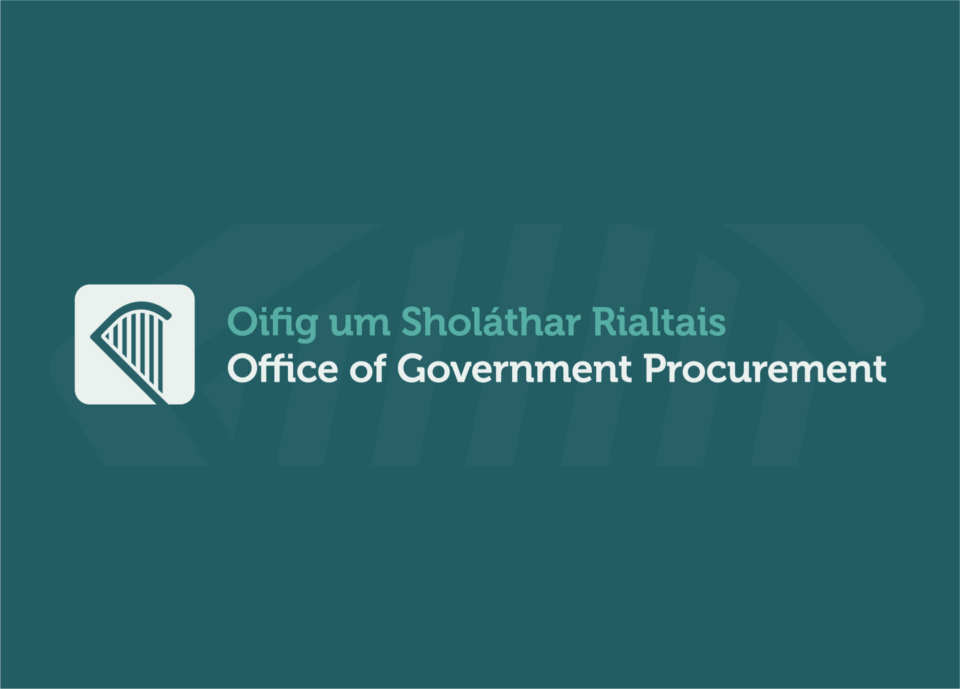The Office of Government Procurement (OGP) plays a key role in helping the State to save money when buying goods and services. Responsible for sourcing common goods and services for the public sector in Ireland, the OGP works to deliver value for money and source diverse products and services including pens and paper, Garda uniforms, and IT equipment.
Employing over 250 individuals across 5 locations in Ireland, the OGP embarked on an ambitious journey of changing the existing internal culture and successfully co-created a people strategy: Empower, with everyone in the business which led to the development of our successful wellbeing programme.
Company statistics
Organisational Type: Irish Governmental
No. of Employees: 250
Location: Dublin, Trim, Sligo, Limerick, and Cork
Promoting Workplace Wellbeing – The Process
- Beginning with an initial road-tour, People and Culture commenced the process by travelling across all 5 OGP locations in Ireland and facilitated workshops and focus groups, with the aim of working alongside team members to co-create a new people strategy, and ultimately improve wellbeing.
- With contributions received from over 92% of OGP employees, the strategy EMPOWER was born. With each letter chosen and developed internally, the aim was to build trust and commitment during the process, and align the strategy with the needs of our people. This people strategy stood for the key tenets of the OGP: engagement, making a difference, positive mind-set, opportunity, wellbeing, expertise, and recognition.
- Wellbeing was a key pillar in EMPOWER and the OGP were committed to being leaders in promoting and enhancing the health and wellbeing of our people, but it became more about embedding this in the culture, than simply providing supports.
- To do so, wellbeing was aligned with all people initiatives. The OGP core values were refreshed and a new Leadership model was developed. Whether leading self, leading others, or leading leaders, the model requires agility, having a purpose, being authentic, and being inclusive and an essential element of wellbeing is the feeling of purpose and belonging, which is apparent within the model.
- People initiatives included coaching and mentoring, webinars on a range of topics including mental health, physical activity, wellbeing, and diversity and inclusion. A culture of continuous learning was created and recognition became a key pillar of OGP’s culture. Supporting professional and personal development was fundamental within the OGP, and launching further education schemes and professional accreditations continued.
Challenges
Engaging with all of our people proved challenging due to time constraints and scheduling issues, however there was a clear interest in the process shown by all. Whilst a time-consuming process, it was an investment that was hugely successful to our people feeling engaged, empowered, and safe to share their thoughts, feedback and suggestions.
Costs
- Costs vary, however, the OGP did not experience excessive costs associated with this process, and utilised relatively low-cost initiatives.
- Availing of free supports through national organisations helped to keep costs down.
- There were costs associated with further education and coaching, however the investment in our people was a cost that was returned through developing our own internal coaches.
Outcomes
- The OGP successfully embedded a culture of wellbeing and this was indicated in the Civil Service Employee Engagement Survey in 2020, when our wellbeing score increased to 80%.
- Rates of turnover have been drastically reduced, from 22% in 2017 to 5% in 2021
- The OGP was one of the first Civil Service organisations to certify as a Great Place to Work
- Enhanced the OGP’s culture of positivity
- Wellbeing is crucial element of the OGP’s core Values
- Our wellbeing programme was key a factor in the OGP being recognised for our success in this area;
- CIPD award winner: HR team of the Year (2020)
- CIPD award winner: Embedding a Culture of Workplace Wellbeing (2022)
- Finalists in IITD Learning & Development Organisation of the Year 2020 & 2021
- Finalists in the Civil Service Excellence & Innovation Awards 2021
Key Learnings
- Creating an inclusive and psychologically safe environment where contributions are welcomed will lead to success.
- Engagement is fundamental to embed a culture of wellbeing, particularly during periods of change, empowering and involving employees in decisions and ensuring transparency and openness is key.
- Commitment from leaders and strong leadership qualities will enhance the process and culture, as leaders act as role-models and champions.
- Regularly evaluate and review wellbeing initiatives to ensure you keep meeting the wellbeing needs of all of your people.
- Align and brand wellbeing initiatives to the key elements of your people strategy or values so that they are recognisable to management, employees, and key stakeholders.

